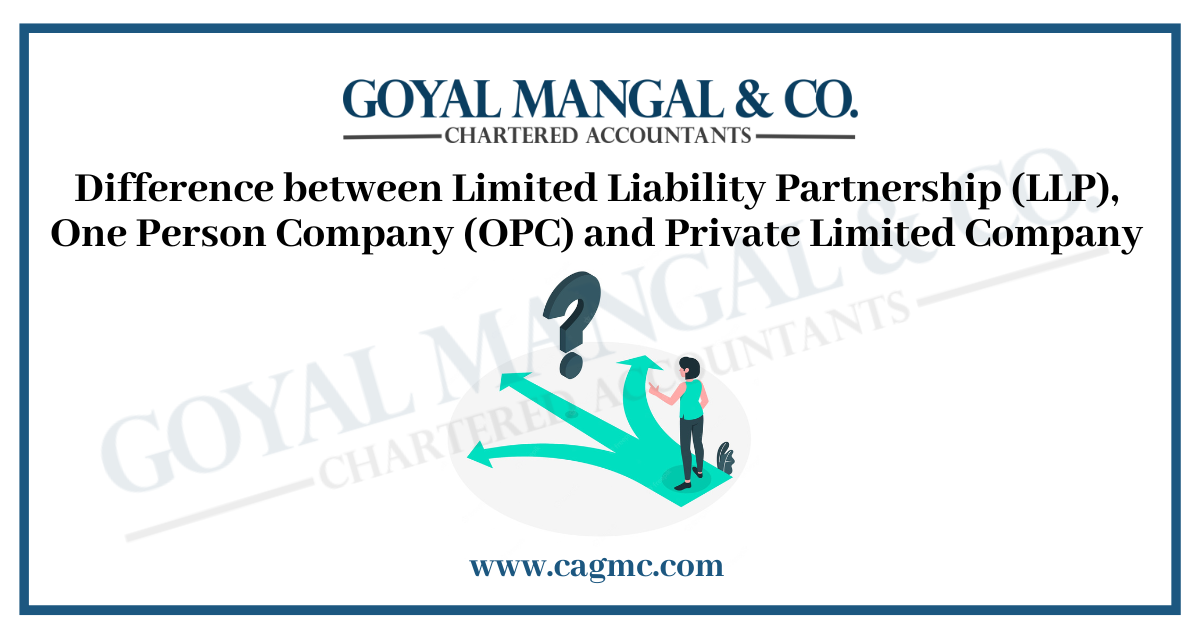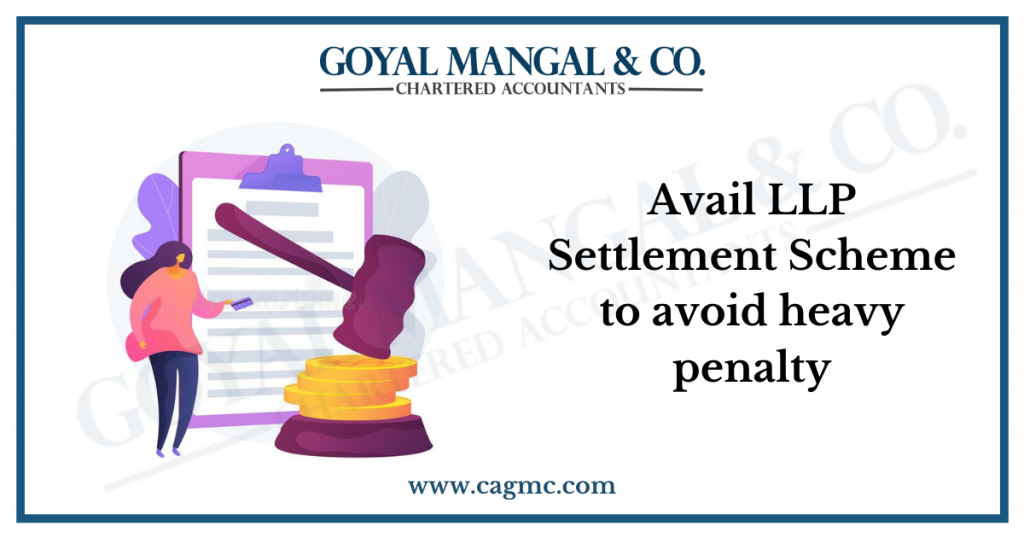 The term ‘Company’ is mainly used to represent a business in different aspects. However, at times entities get confused in choosing the suitable class of company for themselves. If you are a business owner or if you are planning to establish one, it becomes essential to have basic knowledge about the classes and categories of companies under various subheads.
The term ‘Company’ is mainly used to represent a business in different aspects. However, at times entities get confused in choosing the suitable class of company for themselves. If you are a business owner or if you are planning to establish one, it becomes essential to have basic knowledge about the classes and categories of companies under various subheads.
As per the Companies Act, 2013, companies are classified into various types depending on several parameters including liability of members, ownership, number of members, listing status and etc. Hence, whenever a business initiates its first step in trade and commerce relevant to the industry, it becomes necessary to register it under a particular classification and further title it as a company.
If you are a business entity, this article will help you to choose the suitable type of company by analyzing its structure. This will mainly discuss three companies’ classes: Limited Liability Partnership, One Person Company, and Private Limited Company.
|
Table of Content |
Abstract
The development and continuous popularity of company forms of businesses led to the creation of several new types of companies to provide flexibility to corporate organizations. This creation included several factors of consideration for different types of purposes of the companies, and to find a suitable structure under which the company shall be formed. Such factors include:-
- Liabilities of members,
- Number of members,
- Ownership,
- Special resolution, act or bill passed by the parliament,
- Purpose of the Company,
- Control of authority,
- Company’s Location,
- Type of investment,
- Formation and Incorporation, etc.
Mostly, people understand the word company only as a Private Limited Company but the term is based on the requirement and activity of the enterprise and can also be a One Person Company or section 8 Company or a Limited Company as per the system of incorporation under the Companies Act, 2013.
On the other hand, the MSME (Micro, Small, and Medium Enterprises) Act categorize the companies into micro, small, and medium companies to entitle them to make various MSME benefits available.
Introduction to Limited Liability Partnership
This form of business is governed by the Limited Liability Partnership Act, 2008. A Limited Liability Partnership has its separate and individual legal entity. It is a combined form of a Company and a Partnership Firm.
Limited Liability Partnerships are suitable for professional companies with no requirement of equity funding. Major beneficial aspects of a Private Limited Company and a Partnership Firm are combined in it and because of this LLPs gained popularity since the year 2008. Some of the basic features of an LLP are as follows;
- Minimum 2 partners are required to form an LLP and there is no maximum limit prescribed,
- LLPs cannot generate or raise funds from the public,
- No Open offer, public issue or prospectus can be issued such type of companies,
- LLP is an extended form of a Partnership firm with similar features, except-
- Separate Legal Entity– An LLP can sue anyone and can be sued in the name of the company itself, i.e., the LLP will have a separate individuality of its other than its Partners unlike in a Partnership firm,
- Unlimited Liability– Partners in a typical partnership firm hold unlimited liability against the legal consequences and collective debts. This means that the assets of the partners are liable for attachment to meet the debts and liabilities of the firm, contrary to an LLP,
Individual Protection– In a partnership firm, each partner is liable for the actions of another partner, while in an LLP no other partner is liable for the actions of one partner than himself
- The constitution of LLP is written in the document which is known as an “LLP Agreement”,
- When a firm gets registered as an LLP, at the end of the name of the entity the word LLP is mentioned,
- The registration of an LLP is easier than the registration of a Partnership firm (under the Partnership Act, 1932),
(Note: If you’re setting up or running a business that does not require equity funding, you should register your business as an LLP to avail combined benefits of a Partnership firm and a Private Limited Company)
Introduction to One Person Company
A One Person Company is a company in which the member himself acts as the Director, member, shareholder and also promoter of the Company. This form of business is regulated by the virtue of section 2 (62) of the Companies Act, 2013.
It is an extended version of a Sole Proprietorship Firm with the features of a Private Limited Company. There is no requirement of a paid-up capital in a One Person Company. An OPC also has its own separate entity apart from its member. Some of the basic features of an OPC are as follows;
- The OPCs have one member and this type of company has to title one other person as a nominee to carry out business in case its sole member dies,
- OPCs cannot sell its shares to the public in general through the mode of Stock Exchange Platform (SEPs) or list itself on the National Stock Exchange,
- An OPC does not need to hold an Annual General Meeting (AGM) and because of such exemptions the cost of compliance in this form of business is too low,
- It cannot raise funds from the general public through a prospectus or public issue,
- A One Person Company has a minimum of one director and a Maximum of 15 directors,
- The perpetual succession of the company is very low because the company dissolves if the nominee is denied to become its member
(Note: One Person Company is similar to a private limited company, except the fact that there is only one director who is also considered as the only shareholder as well as a member)
Introduction to Private Limited Company
A small group of people handle the entity privately with no public interference in the Private Limited Company form of Business. These type of companies are governed by the virtue of section 2 (68) of the Companies Act, 2013 and other such relevant rules that are applicable on the concerned type of companies.
Some of the basic features by which an enterprise can clarify the factors of a Private Limited Company form of business is are as follows;
- Minimum 2 Directors and 2 Shareholders required for the constitution,
- Maximum 200 members can be shareholders,
- Memorandum of Association (MOA) and Articles of Association (AOA) are the documents in which the constitution of the company are written,
- A Private Limited Company issue its share through the mode of private placements,
- Incorporation of a Private Limited Company is a hassle free process and has a low cost for its Incorporation,
- A Private Limited Company does not raise funds from the general public through any prospectus or public issue, and
- It cannot sell its shares through Stock exchange platform to the general public or be listed on the National Stock Exchange (NSE), etc.
(Note: This type of legal structure should be considered by those start-ups which are looking to raise funds and attract the ESOPs.)
Difference between LLP & OPC & Private Limited Company
Selecting a business entity is the initial step taken by an Entrepreneur while establishing a new business. With the inauguration of the Companies Act, 2013 and the Limited Liability Partnership Act, more choices of form of businesses are made available for the entities. The difference in the structure of the formation of these types of companies can be well understood based on these factors;
Name of the Entity: The name that the promoter chooses and provides must be approved by the ROC (Registrar of Companies). Names would be easily allowed unless they are identical to an existing company or are of an offensive or illegal nature. The name of the entity will necessarily have to end with the title ‘LLP’ or Limited Liability Partnership, OPC or One Person Company and in case of Private Limited Company with it specifically.
Legal Status of Entity: All the below-mentioned forms of companies have an individual/separate legal identity of their own and the Partners in LLP, Directors and Shareholders in a Private Limited Company and Director and Nominee Director of a One Person Company are not personally liable for the liabilities of the Companies.
Registration: All the three types of companies will be registered with the Ministry of Corporate Affairs but under different acts naming;
- LLP– LLP is registered under the Limited Liability Partnership Act, 2008,
- Private Limited Company– A Private Limited Company is registered under the Companies Act, 2013, and
- One Person Company– One Person Company gets registered in accordance with the rules provided by the Companies Act, 2013
Liability of Members
- LLP- Partners are only liable to the extent of the contribution made by them to the LLP,
- Private Limited Company- Shareholders of a Private Limited are also only liable to the extent of the share capital secured by them in the company, and also
- One Person Company- In an OPC, the Director and the Nominee Director are too only liable to the extent of the share capital of the company
Minimum Members
- LLP- Minimum 2 persons are required to constitute an LLP,
- Private Limited Company- Minimum of 2 persons are required to constitute a Private Limited Company as well,
- One Person Company- In an OPC minimum of one person is required to constitute the structure. However, in a One Person Company, a Nominee Director is also appointed for succession of the company. And this requirement mandates the minimum person for constitution of an OPC to 2 members
Maximum Members
- LLP- There can be unlimited number of Partners in an LLP,
- Private Limited Company- Maximum 200 members or shareholders can be a part of a Private Limited Company,
- One Person Company- A One Person Company can have maximum number of 2 members
Ownership of Foreigners
- LLP- If initial approval of Foreign Investment Promotion Board and Reserve Bank of India is taken, foreigners can also invest in an LLP across the borders,
- Private Limited Company- In a Private Limited Company, through Automatic Approval route, foreigners are allowed to invest,
- One Person Company- No foreigner can be a director or the nominal director of an OPC
Transferability: In a Limited Liability Partnership and One Person Company ownership can be transferred generally and in a Private Limited Company ownership is shifted through share transfer.
Survival Ability: The existences of the listed three forms of companies are not dependent on their members, shareholders, directors or partners and they can be dissolved either voluntarily or by the order of respective regulatory authorities.
Tax Rates: The profits of an LLP, Private Limited Company and a One Person Company are taxed at 30% with surcharge and cess.
Annual Statutory Meetings: While there is no requirement of conducting annual meeting for an LLP and an OPC, general and board meetings are required to be conducted mandatorily for a Private Limited Company.
Annual Filings: All three forms of companies must file income tax returns and annual returns with the registrar of companies every year with the annual statement of accounts and solvency.
Which Company is Suitable for You?
Every business has different purposes and objectives in comparison to others. The first step is to find which form of company would be suitable for your enterprise. Few of the factors of each form of company are mentioned hereby to guide you towards the best option of company establishment for your business;
Private Limited Company
The introductory discussion above clarifies features of a Private Limited Company, such as it should be considered by start-ups that are looking for raising funding. But apart from it, there are several benefits to choose a Private Limited Company which are compiled below-
- Fast developing businesses that would require adequate funds and venture capitalists as the source of funding,
- Requirement of Compliance is larger comparatively to other forms of business, and it may include annual filings with the ROCs, statutory audits, annual submission of income tax returns, board meetings quarterly with submitting meeting minutes and etc.,
- The private limited company has many tax advantages including advantages which are industry-specific,
- In a Private Limited Company, taxes must be paid by the rate of 30% on profits, and the dividend distribution tax and Minimum Alternate Tax applies on it
Limited Liability Partnership (LLP)
Enterprises tend to choose LLP when they don’t initially require any funding, and there are some additional benefits of choosing an LLP which are as follows;
- LLP has low tax burden and better benefits,
- LLPs are meant for professional companies with purpose of working as advisory business and no requirement of equity funding,
- These form of businesses are beneficial for non-scalable businesses,
- It has simple structure and limited liability,
- LLP has fewer compliances such as no audit needs to be performed unless the turnover exceeds 40 lakh rupees or the paid-up capital exceeds than 25 lakh rupees,
- LLP offers tax benefits if the business earns more than 1 crores,
- No maximum number of limit for partners is prescribed to form an LLP. So, an LLP should be considered when an entity is establishing at a large scale, such as advertising agency, etc.,
- LLPs have low costs of compliances, no requirement of paid-up capital and is cheaper than a private limited company
One Person Company (OPC)
A One Person Company is similar to a private limited company. Only number of member/director is different, acting as the only shareholder. There are several benefits to choose an OPC which are compiled as follows-
- OPCs are meant for the sole entrepreneurs and sole proprietorship firms,
- Liability is limited in an OPC,
- An OPC with a paid-up capital of 50 lakh rupees or more and revenues of over 2 crore rupees then it would require to be converted into a private limited company,
- An OPC would be required when there is no requirement of raising funds,
- No board meetings are required,
- Easy process of income tax returns, annual filings and statutory audits because of sole member
Conclusion
Therefore, it becomes important for the service providers, businessmen, promoters and entrepreneurs to understand the benefits and suitability of each form of the company so that they can choose the right one for their business entity.
Among the choices available of different forms of companies like General Partnership, Limited Liability Partnership, Proprietorship, Private Limited Company, One Person Company or a Limited Company, only few are ideal for the business entities depending on their requirements.
Connect to our experts and get your choice of a company registered today. Our experts are here to assist you with all the technicalities and procedures.


